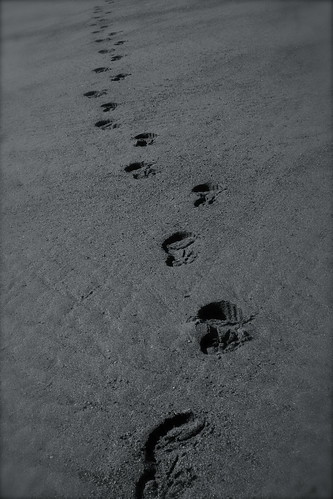Just before Christmas our staff were involved in a school-based professional development day based on the PLC Model of the Dufours. As a primer to the team time spent sharing strategies and developing common assessments, we spent a couple of hours discussing how our story of school might change to better serve our students.
Anyone who is even remotely involved in education knows about curriculum and how it has driven what teachers do and how they do it for many, many years. The predominant “sit and get” style of content driven “teaching” remains entrenched in many (most?) classrooms and schools who continue to be focused on standardized testing. While we remain relatively free of the high-stakes testing and it’s implications for schools and communities here in Canada, most teachers still spend a great deal of time preparing students for “the test”.
Of course, this model of education is all powered by the curriculum engine. Locked in gear and ever-present, these (usually thick) documents are often held in such reverence by teachers, administrators and school board / department types that to challenge their value is like questioning the truth offered within the biblical narrative itself.
Don’t get me wrong. I am not against a curriculum road map that guides teachers in their quest to provide an exciting and engaging learning environment for their students. It’s when that document stands so thick and all consuming with detail that it serves as nothing more than to handcuff innovation and engagement that I begin to falter in my belief in it’s value.
 Over the past couple of years I have had the opportunity to share, converse and reflect upon ideas from many individuals and information sources within my own Personal Learning Network (PLN). During our time together, I challenged our staff to continually ask themselves three broad, yet critical, questions as they plan, deliver and assess their teaching and learning in 2009.
Over the past couple of years I have had the opportunity to share, converse and reflect upon ideas from many individuals and information sources within my own Personal Learning Network (PLN). During our time together, I challenged our staff to continually ask themselves three broad, yet critical, questions as they plan, deliver and assess their teaching and learning in 2009.
1. How is what they do everyday preparing students to live, play and learn in a world where information is becoming increasingly networked, digital and ubiquitous? How are they providing opportunities for students to develop the information literacy skills of locating, assessing, harvesting, connecting, synthesizing, mashing and communicating knowledge from and in a collage of media.
2. In a world that is increasingly built on collaboration and connection, how are we providing opportunities for our learners (teachers and students) to develop and manage their own Personal Learning Networks.
3. In an age where everything, including ourselves, is increasingly public, what are we doing to prepare our young people to develop and manage their own digital footprint. Just how are we helping them to learn to be “googleable”.
These three questions formed the basis for much discussion and, I hope, some great conversations over the course of 2009.
Do you have other questions to suggest?
Technorati tags: technology, education, whipple, learning
Image Title: “Footprints in Sand“, uploaded to flickr by me.
